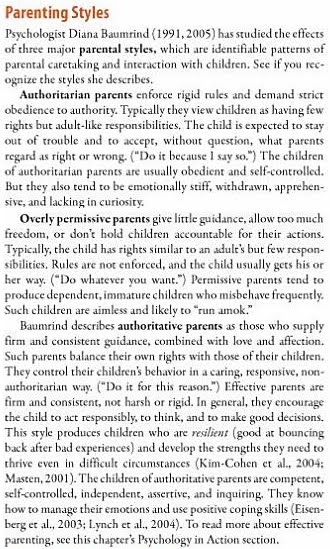Recently, Rabbi Yosef Mizrachi posted the following on Facebook, presumably copied and pasted from this Revach post:
It is strange that the shaliach could discuss the details with Rav Moshe orally, and this didn't spoil Rav Moshe's daas Torah. Even though the shaliach had read HaModia. Or that, had the shaliach written down the details in the newspaper, then reading those same details from the shaliach but in newsprint would have spoiled Rav Moshe's daas Torah, such that he would not be qualified to pasken.
Besides the picture above, which shows Rav Moshe Feinstein holding a newspaper in his hands, and even (lo aleinu!) reading it, there are other reasons to believe that the story is bogus:
1) Rabbi Moshe Tendler has stated (see here, which excerpted from a Mevaser article here) that this claim about his father in law (Rav Moshe Feinstein) is in all the books, but that he and a thousand talmidim can testify that it is false, and further, that Rav Moshe's teshuvot benefited from this window to the world:
 |
| Rav Moshe Feinstein reading a newspaper. Brought to my attention by Mississippi Fred MacDowell. |
The Steipler once sent a shaliach to Rav Moshe Feinstein regarding an important issue which the Steipler wanted Rav Moshe to become involved in. The shaliach discussed the issue with R' Moshe and told him all the details. When he was finished, he pulled out a Hamodia newspaper, explaining that this newspaper happens to have an article about the inyan. Rav Moshe declined to take the newspaper, saying that he had already heard the details so there is no need for him to see the article. The shaliach persisted, explaining that it was possible that he missed one or two important details.
This is an interesting story. It puts forth the idea that Gedolim have daas Torah, seemingly defined here as an oracular quality in which their pronouncements reflect the Divine Will, and that this daas Torah could be spoiled by paying attention to secular sources of information such as newspapers. We are perhaps meant to deduce that we should not read newspapers either, that we should respect Gedolim more than sources of secular knowledge, and should be impressed with deliberate ignorance of the world, because that is more likely to lead to an accurate, Torah-sourced, answer. The idea is that secular influences are a pernicious, corrupting force, and one should avoid it at all costs.Rav Moshe responded, "I have not held a newspaper in my hands for seventy years. As soon as I read a newspaper, I will no longer be qualified to pasken because my mind will not be one hundred percent Da'as Torah."
It is strange that the shaliach could discuss the details with Rav Moshe orally, and this didn't spoil Rav Moshe's daas Torah. Even though the shaliach had read HaModia. Or that, had the shaliach written down the details in the newspaper, then reading those same details from the shaliach but in newsprint would have spoiled Rav Moshe's daas Torah, such that he would not be qualified to pasken.
Besides the picture above, which shows Rav Moshe Feinstein holding a newspaper in his hands, and even (lo aleinu!) reading it, there are other reasons to believe that the story is bogus:
1) Rabbi Moshe Tendler has stated (see here, which excerpted from a Mevaser article here) that this claim about his father in law (Rav Moshe Feinstein) is in all the books, but that he and a thousand talmidim can testify that it is false, and further, that Rav Moshe's teshuvot benefited from this window to the world:
My shver was uniquely sensitive to society. Despite what they write in all the books about him, my shver never failed to read the Yiddish newspaper – either the Tog in the early years or the Morgn-Zhurnal later on – cover-to-cover every single day. People publish that he would walk down the street and avert his eyes when he passed by newspaper stands. There are a thousand talmidim of his who will testify, “I bought the paper and handed it to him in the lunchroom in the yeshivah,” but it does not make a difference for some people – they do not want to hear that. Even when he was not well and the doctor insisted that he must lie down to sleep for an hour, he would go home, put on a bathrobe, and smuggle a newspaper into the bedroom so that his wife would not see it. He sat there reading the whole time, rather than sleeping. I used to ask him, “Why do you read this chazeray (junk)?” He would respond to me, “Dos iz mayn vinde” – this is my window [to the world]. He understood society and his piskei Halachah show that. He used to say, “People think that because I’m aware of society, I became a meikel (lenient decisor). What do they want me to do – paskn incorrectly? I’m not a meikel – I paskn the way it has to be. The Halachah takes into account societal factors.” This willingness to be exposed to society made his teshuvos more meaningful and more acceptable.2) Rabbi Dovid Feinstein, Rav Moshe's son, says something which falsifies the part of the story in which Rav Moshe asserts daas Torah as the basis for his authority and thus as a necessary qualification for a posek:
Rav Dovid Feinstein (personal communication): In response to the question of whether his father ever justified his halachic decisions Rav Feinstein told me the following, “I never heard my father claim that his authority was from Daas Torah. He always insisted that the authority of his rulings was because they involved correct reasoning.”3) On that Facebook thread, someone (a named person) writes:
Did it occur to you to confirm this? Cause i just confimed with Reb Moshes family that its false.



